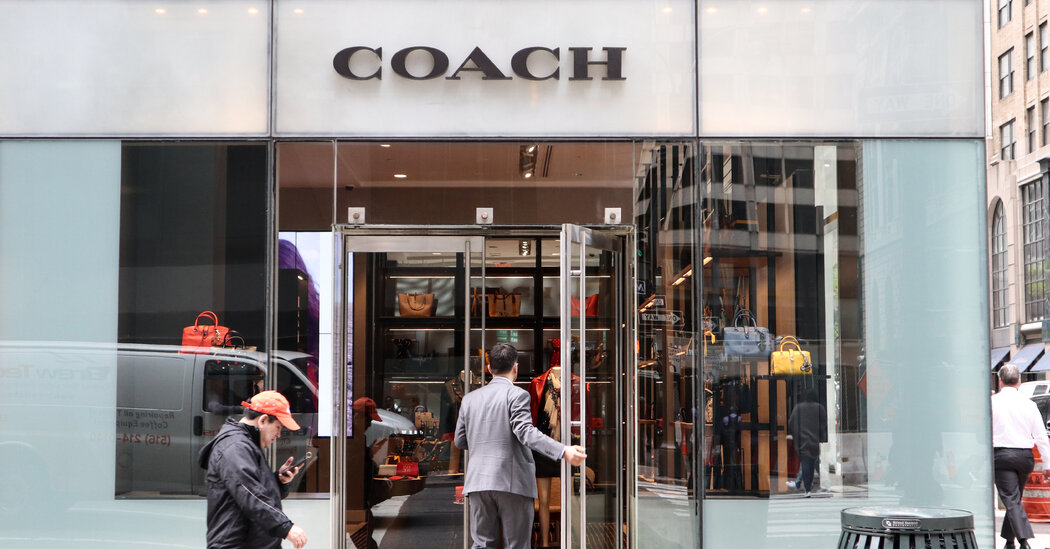
Tapestry, the owner of Coach, said it would abandon its $8.5 billion deal to buy Capri, the parent company of Michael Kors, after the Federal Trade Commission successfully sued to stop the transaction.
An attempt to assemble an “accessible luxury” powerhouse in the United States has unraveled.
Tapestry, the owner of Coach and Kate Spade, and Capri Holdings, the parent company of Versace and Michael Kors, on Thursday called off their plan to merge, which was first announced last year. The Federal Trade Commission had sued to block the $8.5 billion deal last spring over antitrust concerns, and a federal judge sided with the agency last month.
At the center of the F.TC’s case was a worry that consumers would end up paying more for the relatively less expensive handbags and other fashion items sold by Coach, Kate Spade and Michael Kors in what the industry calls the accessible luxury market.
While Tapestry and Capri argued that it was not a defined category, the federal judge ruled that accessible luxury handbags appeared to have traits that distinguished them from true luxury brands. The court determined that the category was defined by bags that start with a price of about $100 and “heavily rely on discounting.”
Tapestry and Capri said that they had “mutually agreed that terminating the merger agreement was in the best interests of both companies.” The decision to abandon their appeal suggested that the companies were not more optimistic about a judge’s ruling under the Trump administration, and that they did not think putting in the time and money required by a lengthy appeal process would result in a viable pathway to acquisition.
“We are now focusing on the future of Capri and our three iconic luxury houses,” John Idol, Capri’s chief executive, said in a statement. Mr. Idol stressed Capri’s strong customer loyalty and store base, with more than 1,200 retail locations worldwide.
Joanne Crevoiserat, the chief executive of Tapestry, said in a statement that “we have always had multiple paths to growth, and our decision today clarifies the forward strategy.”
“Tapestry remains in a position of strength,” she added.
Tapestry also said its board had approved a program in which the company would buy an additional $2 billion of its own shares.
The company’s shares rose about 10 percent, and shares of Capri fell 4 percent, in early trading on Thursday.
This post was originally published on this site be sure to check out more of their content.








